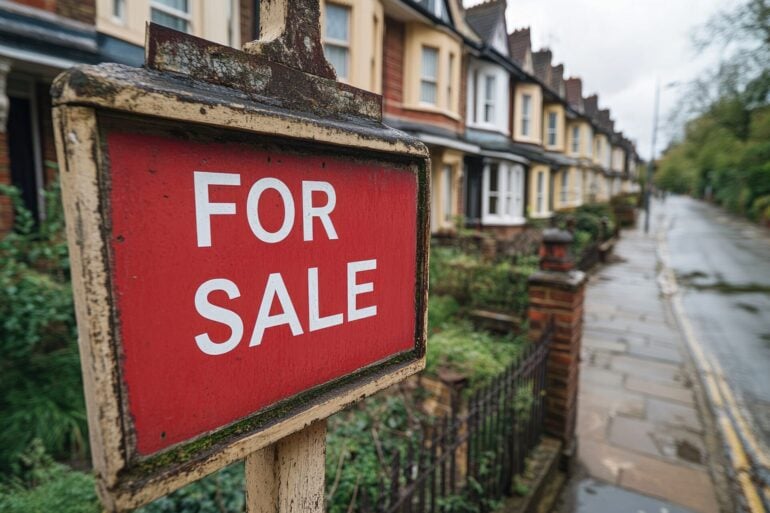England’s empty homes tax policy has failed to significantly cut the number of vacant properties, according to Elliot Rainbow, CEO of Ernest Brooks International (EBI).
Rainbow said: “The empty homes tax was meant to be a deterrent. It’s turned out to be little more than background noise.
“Since 2013, owners of long-term vacant homes have faced sliding council tax penalties of up to 300%.
“But over a decade later, the number of empty homes in England has risen. It’s clear this policy hasn’t moved the needle – because it completely misunderstands the psychology and profile of those holding these homes.”
Rainbow said wealthy owners were largely unaffected.
Rainbow added: “At the top end of the market – think luxury flats in Mayfair or investment units in Canary Wharf – the tax is simply irrelevant.
“For many international or ultra-high-net-worth owners, a 300% council tax bill is a rounding error. These properties aren’t left empty by mistake.
“They’re strategic assets, safety deposit boxes in a volatile world, and the owners don’t flinch at minor surcharges.
“You don’t get behaviour change when the financial sting barely registers.”
He also said many empty homes are in poor condition or stuck in probate, adding: “At the other end, many properties are stuck in probate, in disrepair, or located in areas with little rental demand.
“A tax doesn’t solve those problems. In fact, the most effective reduction in empty homes came not from tax, but from government-backed incentives and refurb grants in the early 2010s.
“Once that support dried up, empty homes rose again. The stick has never worked without a carrot.”
There are ways for some owners to avoid paying the empty homes charge, such as by putting furniture in the property and claiming it is a second home.
Rainbow noted that with the new second home premium expected soon, people may still find new loopholes, as has happened in Wales where such premiums have not stopped large numbers of empty holiday homes in seaside towns.
He said an increase in council tax alone is unlikely to make a difference, and suggested that more targeted measures are needed if the Government wants to change investor behaviour.
Addressing possible improvements, Rainbow said linking the tax directly to the value of the home, rather than basing it on council tax bands, might have more impact.
He gave an example that a 1% annual tax on a property worth £5 million would amount to £50,000, which would be noticeable even to high net worth owners.
Additionally, he also suggested introducing penalties sooner, after six months rather than a year, and ensuring rules are strictly enforced.
However, Rainbow warned that introducing more harsh taxes or reducing landlords’ rights, for example, under the proposed Renters’ Reform Bill, could have negative consequences.
He pointed to Ireland, where similar actions led to many landlords leaving the market, rapid rent increases and long queues for rental properties.
Rainbow said the UK could face the same problems if it is not careful, and that more landlords were already leaving properties vacant due to concerns about losing control.
He said: “We’re already seeing signs. At Ernest Brooks International, over 70% of our landlord clients are from East and Southeast Asia.
“Many are now choosing to leave their London flats empty rather than sign tenancy agreements that could leave them powerless to regain possession.
“That might sound extreme, but it shows just how worried the market is. It’s no longer just about tax – it’s about control, predictability, and risk. Take that away, and landlords pull out. Tenants are the ones who suffer.”
He added: “At the same time, Britain is already seeing a record number of millionaires leaving the country each year – and housing policy plays its part.
“Do we really want to be a country that drives out global capital while simultaneously wondering why investment is drying up?
“Punishing wealth may win headlines, but it doesn’t build homes. Smart policy does.
“If we want to bring empty homes back into use, we need a balanced strategy – not just heavier taxes.
“That means incentivising refurbishment, empowering councils to use empty dwelling management orders, offering adaptive reuse grants, and creating clear paths for local authorities or housing associations to step in.”
He said: “For second homes, we should consider planning restrictions in oversaturated areas and rethink business rate loopholes.
“Above all, we need to distinguish between those gaming the system and those genuinely struggling to bring properties into use.
“The housing crisis won’t be solved by beating landlords with a stick while letting the system rot around them.
“It’ll be solved by engaging with the realities of ownership, finance, and development – and designing policy that actually addresses the reasons homes are empty in the first place.”




